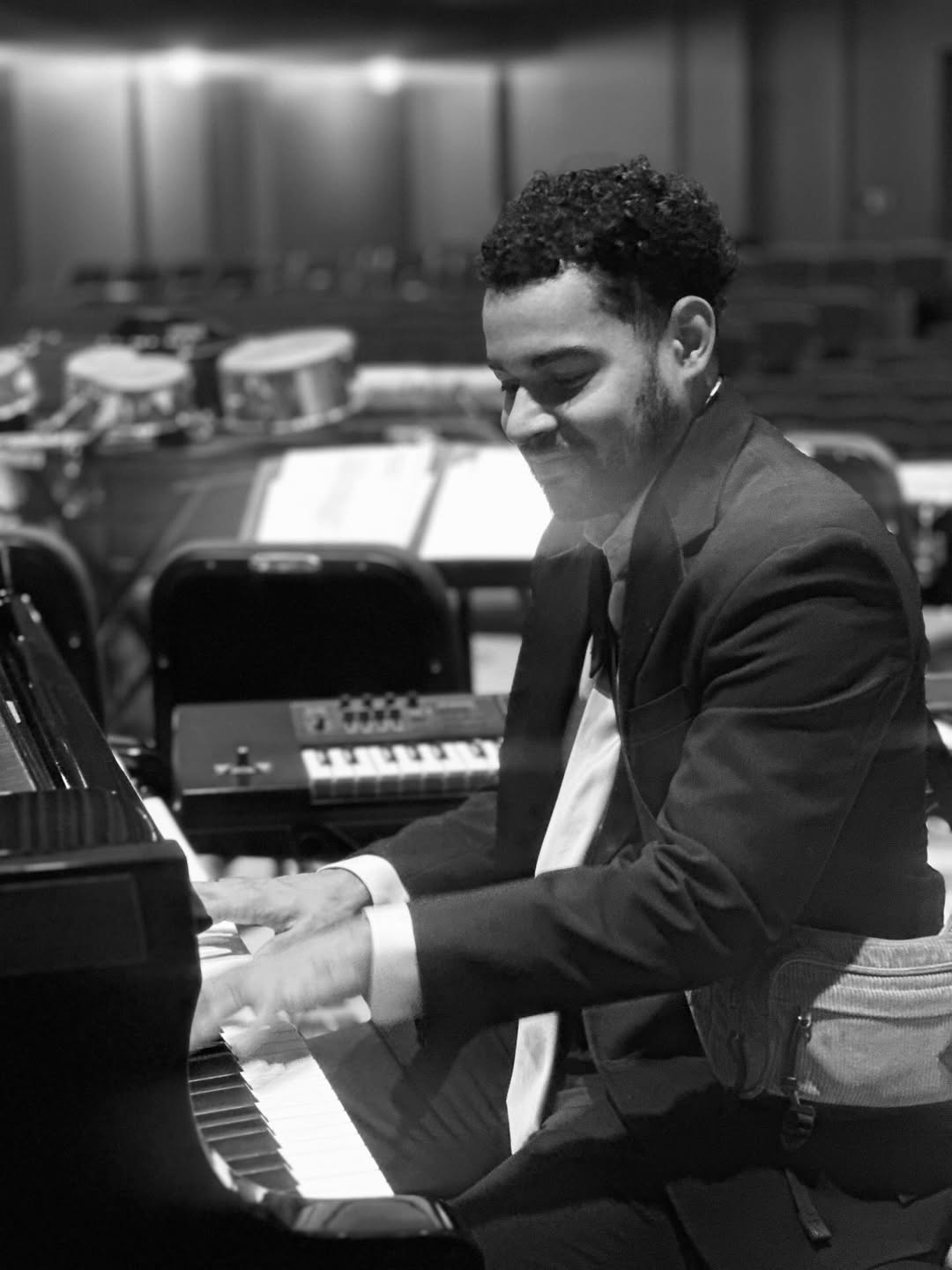When Nabil Muquit first arrived in Denton, Texas, from Philadelphia, he brought with him more than just a suitcase of clothes and a collection of saxophones. He carried an entire musical history, an understanding of melody and longing, and a curiosity about how sound could capture emotion in a world that too often settles for surface-level sentiment. It was in the quiet of a UNT studio, piano keys worn beneath his fingers, that “Augustina” began to take shape—a song that now stands as the first real marker of Muquit’s solo voice, a reflection of intimacy, longing, and the kind of romantic imagination too rarely explored in contemporary music.
Muquit’s upbringing in Norristown, just outside Philadelphia, exposed him early to the nuances of jazz and the possibilities of narrative in song. Yet it wasn’t until his college years, under the mentorship of Braxton Cook, that he began to see the potential for translating that foundation into his own artistic journey. Cook, a saxophonist and singer-songwriter known for blending technical proficiency with emotive storytelling, taught Muquit that a musician’s power lies not just in skill, but in empathy. “He made me feel seen even when I was just a young kid figuring out music and life,” Muquit says. That guidance left an indelible mark on the way he approaches creation, teaching him that artistry is as much about openness and human connection as it is about notes and rhythms.
“Augustina” began modestly, as a piano improvisation in the solitude of a dark UNT studio. There was no grand plan, no expectation that this brief encounter with melody would become a full-fledged song. Muquit played through the piece a few times, then shared a clip on Instagram. The feedback was immediate and encouraging. “A friend told me the music I was making felt really innovative,” Muquit recalls. That affirmation sparked the next step: he expanded the piece into a second version, notating it for sheet music, and eventually testing it with his band. The response solidified the song’s trajectory, and soon he was in the studio translating the intimate piano sketches into the layered, ambient composition that now circulates on streaming platforms.
At its core, “Augustina” is a study in longing. The title character is both real and imaginary, a muse and a metaphor, an embodiment of the kind of romance Muquit feels is missing from contemporary music. It is a yearning for intimacy and for something just out of reach, a quiet rebellion against the cynicism that often dominates love songs today. Through the track, listeners encounter a space that is simultaneously dreamlike and grounded, a reflection of Muquit’s own oscillation between hope and melancholy. “She’s a manifestation,” Muquit explains. “A regular character I see in my imagination and sometimes in the real world, whose existence is a source of inspiration.”
The song’s genre fluidity mirrors its conceptual ambitions. Drawing from lofi hip hop, electronic textures, and ambient jazz, Muquit has created a soundscape that feels contemporary yet timeless. It’s a delicate balancing act; the production must remain expansive without ever losing the emotional intimacy that defines the song. Muquit credits his instinct and patience for this equilibrium. “When I feel something and it feels good, I’m usually happy with the end result,” he says. His approach is reflective, spontaneous, and rooted in authenticity, allowing the song to breathe rather than forcing it into a pre-defined mold.
Muquit’s move from Philadelphia to Denton proved instrumental in shaping this artistic perspective. The transition brought not only geographical change but a deepening relationship with the piano and jazz harmony. “Since I started on the saxophone, I always thought of things melodically,” he reflects. “But being around pianos every day allowed me to embrace melody, harmony, and rhythm in ways I couldn’t before.” That shift enriched his compositional palette, giving him the freedom to experiment with harmonic landscapes and tonal textures that define Augustina.
Performing the song live introduces a different energy entirely. Where the studio recording is meditative and ethereal, Muquit’s live performances bring the track into a more passionate, communal space. “The studio version is the meditative version of the ethereal song,” he says. “When we play it live, it rocks the room. It’s a different kind of intimacy, one that connects with the audience in real time.” This duality—the private reflection and the shared experience—underscores the song’s versatility and Muquit’s growing confidence as a solo artist.
The journey from collaboration to introspection is also key to understanding Muquit’s trajectory. His previous work with Jake the Jeweler on Kelly Drive/Pistachio showcased his ability to navigate external influences and shared creative spaces. With “Augustina,” however, Muquit shifted focus inward, crafting something deeply personal and atmospheric. The song reflects a vision unmediated by collaboration, a choice that underscores his dedication to authenticity and emotional clarity. Looking ahead, Muquit is intent on exploring the acoustic and ambient textures of jazz records from the 1960s and 70s. He wants listeners to experience music that breathes, where drums, piano, and instrumentation are allowed to resonate organically. Each release promises a continuation of the sonic and emotional world he has begun to build—a world that values optimism, intimacy, and the transformative potential of sound.
There is a subtle optimism in Muquit’s philosophy, a desire to restore romance and passion to a musical landscape that has often replaced them with cynicism and heartbreak. “Love songs used to be about optimism, about winning someone over in the most romantic ways,” he reflects. “Augustina” is his contribution to that conversation, a song that invites listeners to reconnect with the emotional stakes of music, to feel again the quiet thrill of longing and intimacy.
Muquit’s story is not just one of technical skill or innovative composition; it is a narrative of human connection, mentorship, and the courage to pursue personal vision in a competitive musical world. His mentor’s guidance, his move across states, and the solitary hours spent at a piano all converge in a body of work that is as introspective as it is inviting. Every chord, every note, every ambient texture in “Augustina” carries the weight of experience, curiosity, and care. In a time when much of contemporary music prizes the immediate, the viral, and the loud, Muquit’s work is quiet but resolute. It is an invitation to pause, to reflect, and to immerse oneself in a soundscape that blends memory, imagination, and hope. “Augustina” is more than a song; it is a testament to the enduring power of emotional truth in music, a glimpse into the heart of an artist intent on redefining intimacy and passion for a new generation.
Nabil Muquit is still at the beginning of his solo journey, but even now, his voice is distinct, compelling, and necessary. The musical world is dominated by trends, but he reminds listeners that there is still room for tenderness, fantasy, and the enduring thrill of discovery. “Augustina” is an opening chapter, and if this first step is any indication, Muquit’s future releases will continue to explore the depths of emotion, the play of melody, and the spaces where music can feel both personal and universal.
Featured Image: Artist Supplied





